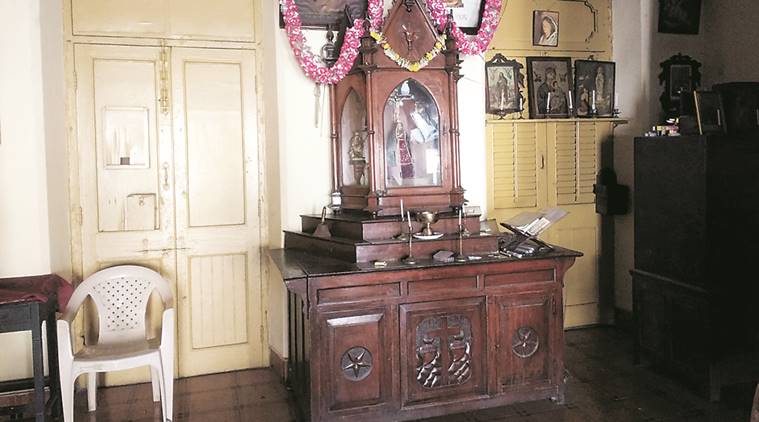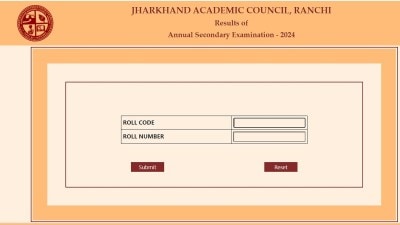- India
- International
Melting pot: Once famous for community life, Goan clubs fight for survival in Mumbai
The kudds began to be established around 150 years ago when large numbers of people from Portuguese Goa began migrating to British Bombay in search of work opportunities.
 In its prime, one Goan club or ‘kudd’ would accomodate 70-80 people, which now has come down to 20. There are 90 such registered kudds in Mumbai. Express
In its prime, one Goan club or ‘kudd’ would accomodate 70-80 people, which now has come down to 20. There are 90 such registered kudds in Mumbai. Express
The doors in the dark cloistered landings of the crumbling Jer Mahal in Dhobi Talao prominently bear the names of various Goan villages. You might come across one bearing the name of Savantwadi, another bearing that of Saipem. Each of these doors leads to a different ‘kudd’ or Goan club. Inside are bare living quarters with stacks of trunks lined up against the walls.
Watch What Else is Making news
The kudds began to be established around 150 years ago when large numbers of people from Portuguese Goa began migrating to British Bombay in search of work opportunities. These young workers were unable to afford individual houses and found community living a more feasible option. Most of those migrating from a village knew each other; so it came to be that the young men of particular villages began renting out rooms together and named these kudds after the patron saints of their respective villages. Other than Jer Mahal, which houses 23 kudds, they are clustered in Mazgaon, Bandra, Nepean Sea Road and other parts of Dhobi Talao. According to Henry Fernandes — Treasurer of the Federation of All Goan Clubs (Kudds), Mumbai — at one point of time there were 470 kudds in prime locations in Mumbai, but in a survey that the organisation took four years back, they could locate a dwindled number of 270.
These kudds became nuclei for the recreation of the village community life that these young men had left behind. Felix Dias, President of the Federation of All Goan Clubs, says with a strong sense of nostalgia: “Living in the kudd was a happy time. It was even better than home, every member would look after each other.” Till date, each kudd celebrates its annual village feast.
The kudds have their own order of things. In a city with exorbitant rent rates, members live in them for as less as fifty rupees a month. According to Mrs Marta, whose household is one of the few in Jer Mahal which is not a kudd: “Living in one of the clubs is not like living at home, it’s more like a hostel.” It is mandatory for the members to be back at 7 pm every evening after work, in time for rosary. By 9.30 pm everyone should be ready to sleep and lights must be switched off at 10.30 pm. Each member is allowed one trunk to hold their belongings, and these carriers of their existence in Mumbai line the walls. A large altar sits in each kudd.

Today, the membership of the kudds has waned considerably. According to Dias, liberation from the Portuguese generated better income opportunities in the state and its emergence as a tourist haven led to a rise in real estate value there, and many are currently working abroad. During their prime, 70 to 80 members would be living in a kudd at any given time. The tiny St Anne’s Club of Ponda currently has only one member living in it, an employee of the Central Railway. At most a club will house 20 people now. Both Dias and Fernandes ruefully comment that today these simple residential clubs for working men are considered too plebeian by many youngsters and former residents who have amassed wealth. Most of the current residents are ship-workers in transit.
Nevertheless, members who were residents are trying to preserve these communes. When the tenants were under threat of being evacuated from the rooms with the rise in Bombay’s real estate value in the 1980s, these members successfully got the kudds registered with the Charities Commission which immunised them from evacuation. Currently, 90 kudds are registered as such. The efforts to preserve these clubs seem to stem largely from an impulse to perpetuate happily remembered traditions during a time when the pulls of contemporary urban life in Mumbai are rendering these village-based community living quarters increasingly difficult to maintain and diminished in functionality.
Apr 19: Latest News
- 01
- 02
- 03
- 04
- 05






































